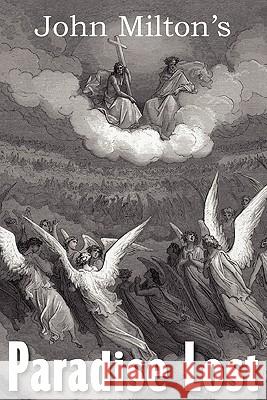Paradise Lost » książka
Paradise Lost
ISBN-13: 9781612032443 / Angielski / Miękka / 2011 / 264 str.
Paradise Lost
ISBN-13: 9781612032443 / Angielski / Miękka / 2011 / 264 str.
(netto: 64,16 VAT: 5%)
Najniższa cena z 30 dni: 66,81
ok. 16-18 dni roboczych.
Darmowa dostawa!
Paradise Lost is an epic poem in blank verse by English poet John Milton. Originally published in 1667 in ten books the second edition followed in 1674 divided into twelve with arguments at the head of each book. Milton scholars generally have used this edition as the standard for any new scholarly edition. Here is presented the twelve book version with arguments and selected illustrations. Paradise Lost concerns the story of the Fall of Man, the temptation of Adam and Eve by Satan and their expulsion from the Garden of Eden. Milton's purpose is to "justify the ways of God to men" and elucidate the conflict between God's eternal foresight and free will. "Every poem can be considered in two ways - as what the poet has to say, and as a thing which he makes. From the one point of view it is an expression of opinions and emotions; from the other, it is an organization of words which exists to produce a particular kind of patterned experience in the readers" C. S. Lewis
Paradise Lost is an epic poem in blank verse by English poet John Milton. Originally published in 1667 in ten books the second edition followed in 1674 divided into twelve with arguments at the head of each book. Milton scholars generally have used this edition as the standard for any new scholarly edition. Here is presented the twelve book version with arguments and selected illustrations.Paradise Lost concerns the story of the Fall of Man, the temptation of Adam and Eve by Satan and their expulsion from the Garden of Eden. Miltons purpose is to "justify the ways of God to men" and elucidate the conflict between Gods eternal foresight and free will. "Every poem can be considered in two ways - as what the poet has to say, and as a thing which he makes. From the one point of view it is an expression of opinions and emotions; from the other, it is an organization of words which exists to produce a particular kind of patterned experience in the readers" C. S. Lewis











